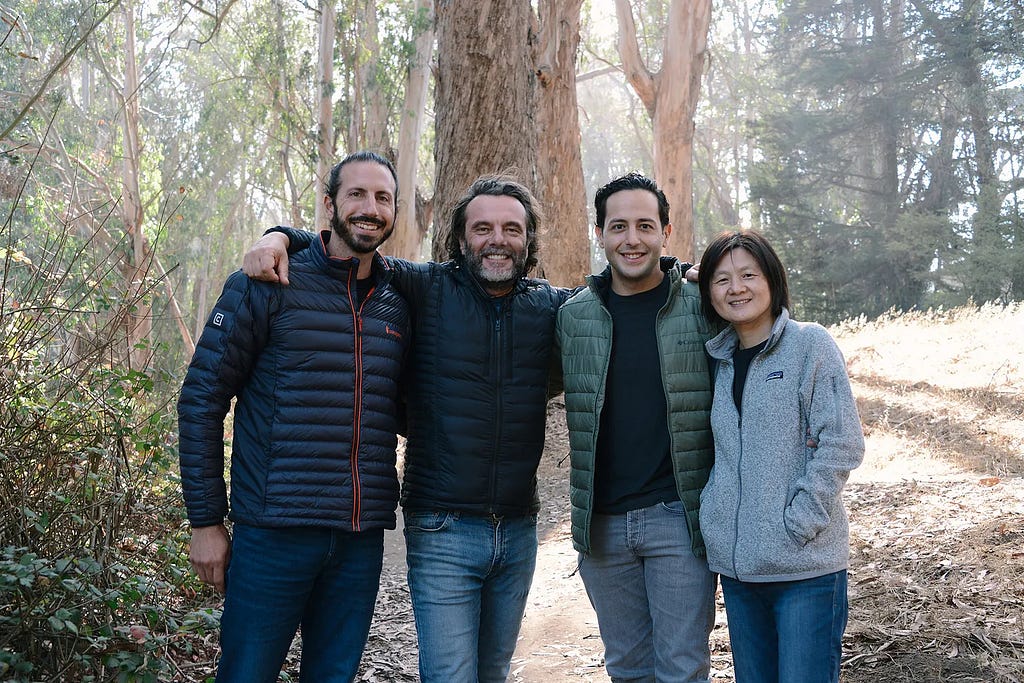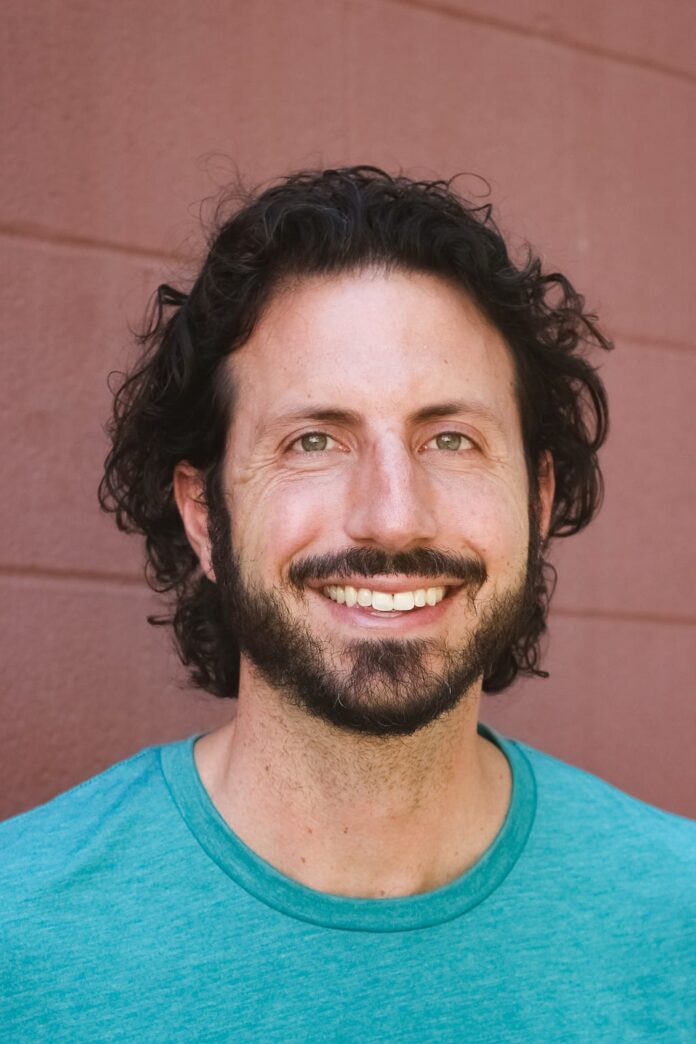C-Suite Perspectives On AI: Peter Ombres Of Curated On Where to Use AI and Where to Rely Only on Humans
An Interview With Kieran Powell
Recognizing the strengths and current limitations of AI, and augmenting those AI solutions with humans, will allow companies to see the impact of AI sooner.
As artificial intelligence (AI) continues to advance and integrate into various aspects of business, decision-makers at the highest levels face the complex task of determining where AI can be most effectively utilized and where the human touch remains irreplaceable. This series seeks to explore the nuanced decisions made by C-Suite executives regarding the implementation of AI in their operations. As part of this series, we had the pleasure of interviewing Peter Ombres.
Peter Ombres is the CEO and Co-Founder of Curated, a startup he’s been running since 2017. Curated is where you go online to get trusted, expert advice to confidently buy the right gear, right away. By combining the best parts of the in-store shopping experiences with the convenience and comfort of online shopping, Curated has created the cure for buyer’s remorse.
The Curated platform connects shoppers with experts and industry-leading AI solutions and the results speak for themselves. With an average order value of $700 and over 150,000 five-star reviews, Curated has transformed how consumers approach significant online purchases across multiple categories.
Prior to founding Curated, Peter spent more than two decades as an executive with industry-leading companies including Google, YouTube, and LinkedIn. During his tenure, he spearheaded the launch of many innovative ventures, including YouTube TV, YouTube’s NFL Sunday Ticket, LinkedIn’s relaunch in Japan, LinkedIn’s acquisition of Connectifier, and Google X’s Project Loon.
Thank you so much for your time! I know that you are a very busy person. Our readers would love to “get to know you” a bit better. Can you tell us a bit about your ‘backstory’ and how you got started?
I’ve been an entrepreneur since before I could drive. In high school, my brother and I started a computer IT business helping local small businesses with tech issues. In college, I co-founded a loyalty card program for restaurants and bars in LA. After college, I was involved in several startups, including founding Gunnar Optiks. I’ve bounced between entrepreneurship and being a tech executive throughout my career.
The idea for Curated came when my co-founders and I were running LinkedIn Talent Solutions. After Microsoft acquired LinkedIn, we saw an opportunity in e-commerce for more complex purchases that even Amazon has not yet solved. We wanted to recreate the in-store experience of getting live expert help for complicated, expensive purchases in the online world. That was the genesis of Curated.
It has been said that our mistakes can be our greatest teachers. Can you share a story about the funniest mistake you made when you were first starting? Can you tell us what lesson you learned from that?
We originally launched Curated as Deal.com, thinking we had this great, memorable four-letter domain. However, as we started talking to brands, we quickly realized they weren’t excited about being associated with “Deal.” They took pride in their brands and were concerned about minimum advertised pricing. We had to pivot and rebrand as Curated, which ended up being a much better fit for what we do. The lesson was to really listen to your partners and customers, and not get too attached to your own ideas if they don’t resonate with the market.
Are you working on any exciting new projects now? How do you think that will help people?
We’re working on some exciting projects to expand how we provide expert advice to consumers. Historically, our model has been based on one-on-one conversations between consumers and experts, but we’ve realized there’s a portion of consumers who aren’t ready for that direct interaction right away. We’re developing new ways for our experts to share their knowledge outside of those one-on-one conversations. This will help us reach a much larger audience with our expertise. We haven’t announced specifics yet, but stay tuned for a few exciting launches in the coming months.
Thank you for that. Let’s now shift to the central focus of our discussion. In your experience, what have been the most challenging aspects of integrating AI into your business operations, and how have you balanced these with the need to preserve human-centric roles?
The most challenging aspect of integrating AI has been determining the right moment to transition from AI to a live human interaction. AI is great at handling straightforward Q&A, but struggles with the more nuanced aspects of understanding a person’s individual needs and developing a deeper connection. We’re working on using AI to better understand where a consumer is in their journey and when they need that human touch. It’s a delicate balance of leveraging AI’s efficiency while preserving the irreplaceable human connection.
Can you share a specific instance where AI initially seemed like the optimal solution but ultimately proved less effective than human intervention? What did this experience teach you about the limitations of AI in your field?
We’ve found that AI is limited in its ability to provide truly personalized recommendations. While it’s great at collecting information about a consumer’s needs and preferences, it struggles to take that information and provide intelligent, tailored options. For example, AI can gather data on where a consumer skis and what type of skier they are, but it struggles to replicate that magical moment of connection when an expert and customer realize they’ve skied the same run at their local resort on an epic powder day. Although AI can increase the funnel of users experiencing Curated’s expertise, this experience reinforced for us that the emotional, experiential aspects of shopping still require human interaction.
How do you navigate the ethical implications of implementing AI in your company, especially concerning potential job displacement and ensuring ethical AI usage?
We navigate the ethical implications by viewing AI as an enabler rather than a replacement for our experts. We see AI taking over more mundane, repetitive tasks, freeing up our experts to focus on what they love: sharing their passion and expertise with customers. This allows our experts to help more consumers at a higher scale. We’re transparent with our team about this vision, emphasizing that AI will empower them to have a greater impact and help more customers rather than replace them.
Could you describe a successful instance in your company where AI and human skills were synergistically combined to achieve a result that neither could have accomplished alone?
A great example of AI and human skills working together is in our initial customer interactions. We use AI to handle initial questions, helping customers learn about product categories and terminology in a low-pressure way. This “warms up” the customer and educates them to a point where they’re ready for a more in-depth conversation with a human expert. The AI handles the basics, allowing the human expert to immediately dive into providing high-value, personalized advice when they enter the conversation.

Based on your experience and success, what are the “5 Things To Keep in Mind When Deciding Where to Use AI and Where to Rely Only on Humans, and Why?” How have these 5 things impacted your work or your career?
I don’t have five specific things, but the overarching principle is to use AI for tasks that are straightforward and repeatable, while relying on humans for emotional connection and nuanced decision-making. In our business, this means using AI for initial information gathering and basic education, but bringing in human experts for personalized recommendations and sharing experiential knowledge. An AI agent doesn’t know what it’s like to pull the perfect espresso shot with a specific machine or ski knee deep powder with a specific pair of skis. Recognizing the strengths and current limitations of AI, and augmenting those AI solutions with humans, will allow companies to see the impact of AI sooner.
Looking towards the future, in which areas of your business do you foresee AI making the most significant impact, and conversely, in which areas do you believe a human touch will remain indispensable?
I see AI making the most significant impact in customer service, product information delivery, and information gathering. It’s great for handling straightforward inquiries and providing basic product details. However, the human touch will remain indispensable in areas requiring empathy, personal connection, and complex decision-making. In our business, that means the final stages of helping a customer choose the right high-consideration product for their specific needs and preferences. AI can help a customer understand the attributes of a product or summarize a product description, but only a human is able to help make a recommendation on the best product for a specific customer’s situation.
You are a person of great influence. If you could start a movement that would bring the most amount of good to the most amount of people, what would that be? You never know what your idea can trigger. 🙂
I believe in cultivating humanity in an increasingly digital world. As AI becomes more ubiquitous, it’s critical that we create moments for genuine human interaction and connection. At Curated, we’re using technology to facilitate human connections, not replace them. We need to be thoughtful about how we implement AI, always being transparent with consumers about when they’re interacting with AI versus a human. Ultimately, there’s something powerful and irreplaceable about human-to-human interaction that we should strive to preserve and enhance.
How can our readers further follow your work online?
To learn more about Curated, visit https://www.curated.com/. The best place to follow my updates is via LinkedIn: https://www.linkedin.com/in/peterombres/.
This was very inspiring. Thank you so much for joining us!
About The Interviewer: Kieran Powell is the EVP of Channel V Media a New York City Public Relations agency with a global network of agency partners in over 30 countries. Kieran has advised more than 150 companies in the Technology, B2B, Retail and Financial sectors. Prior to taking over business operations at Channel V Media, Kieran held roles at Merrill Lynch, PwC and Ernst & Young. Get in touch with Kieran to discuss how marketing and public relations can be leveraged to achieve concrete business goals.
C-Suite Perspectives On AI: Peter Ombres Of Curated On Where to Use AI and Where to Rely Only on… was originally published in Authority Magazine on Medium, where people are continuing the conversation by highlighting and responding to this story.


